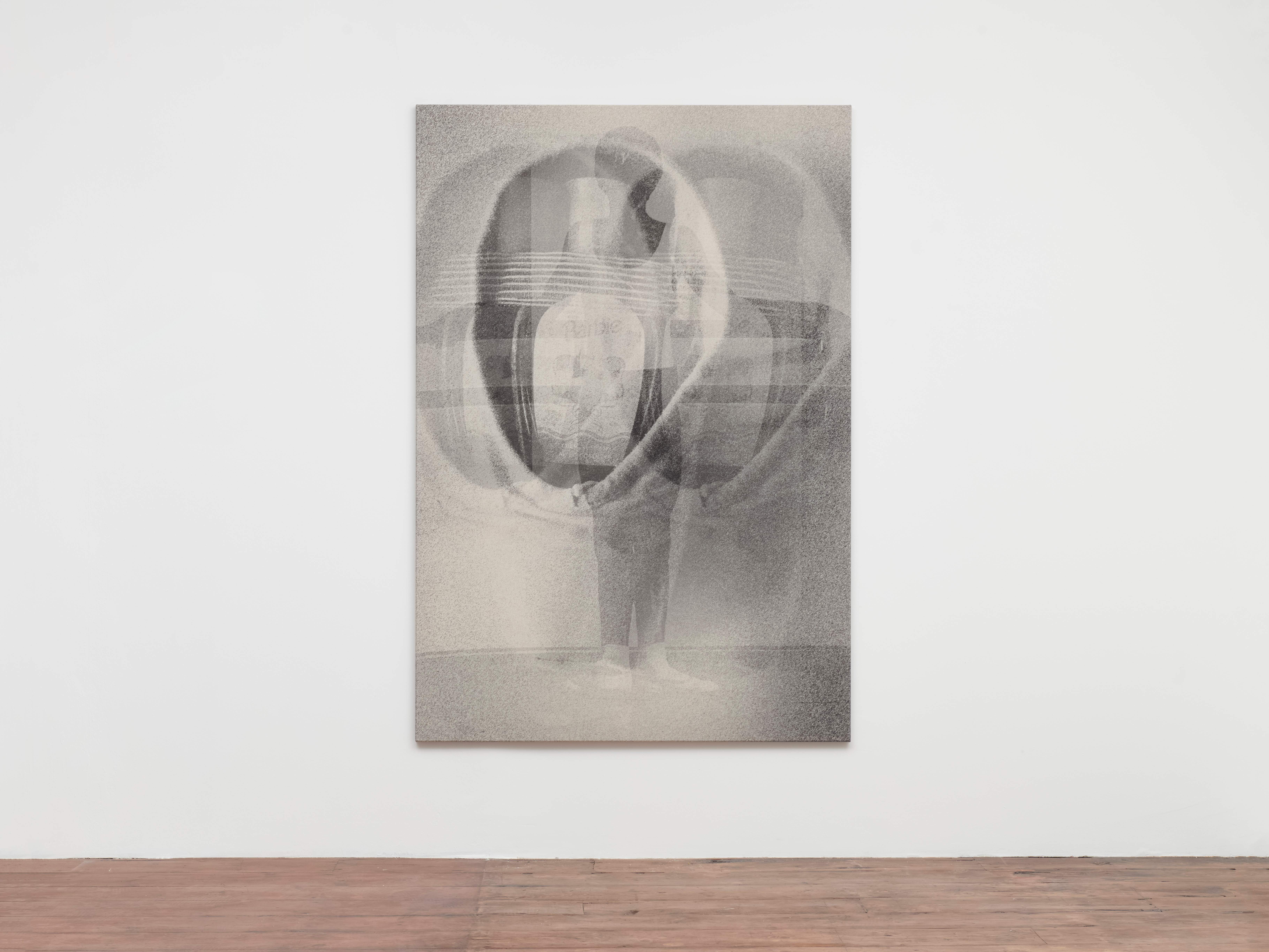Work Cycle
At a young age, Ana Viktoria Dzinic had to learn that there is a zone of extraction where identity and image economy meet – and yet that there are ways of subverting this for one’s benefit. Her two-part series is made up of sculptures, Liberal Trauma Trophies, and printed canvases, Conservative Distress Displays: ghostly reproductions of an artwork series recovered from her childhood. Systematically documenting herself as a child was instrumental in navigating the bureaucratic structure of gender reassignment procedures, causing her to develop a habit of collecting evidence. Having spent her childhood training as a male ballet dancer, she began self-mythologising her past through a canon of symbols of femininity and transformation, taking series of pictures of romanticised ballet shoes as a constructed catalogue of her past in objects. The shoes, not really hers; the stories, mistold; the memories, reconstructed. It is an exercise in the flattening of reality and determinism, storytelling moving beyond truth or validity.
Researching the vernacular ways in which images proliferate, Dzinic is interested in the medium of user-generated technologies such as home-order prints and self-made monuments. Bronze-cast ballet shoes that parents make as keepsakes for their children are layered with a staggering amount of her manipulations: the bronze and mahogany are replicas, the drawings imitations, and aging an artifice. Dzinic creates ‘merch’ objects infested with ghosts, casting internet-era spells of manifestations for a reproduced history and a desired future. The naive symbols, faux framed drawings that illustrate private desires such as money, success or belonging, are taken from Seth Price’s text on the motivations that bring people into the artworld. Manifestations are ideologically ambiguous. The slippery boundary between a spiritualistic belief in the power of images and their actual value in systems of exchange is an example of a kind of practical magic that echoes through pop cultural history – like pop songs that functioned as sigils for the occult band Psychic TV. In contemporary terms, this seductive occultism aligns perfectly with the ways media proliferate online. To take an existing circuit of economy and frame it as a neutral force that can be bridled for one’s personal determination – here, in today’s depriving system, a latent spirituality turns into user-generated technology.
Text by Tosia Leniarska
Installation View
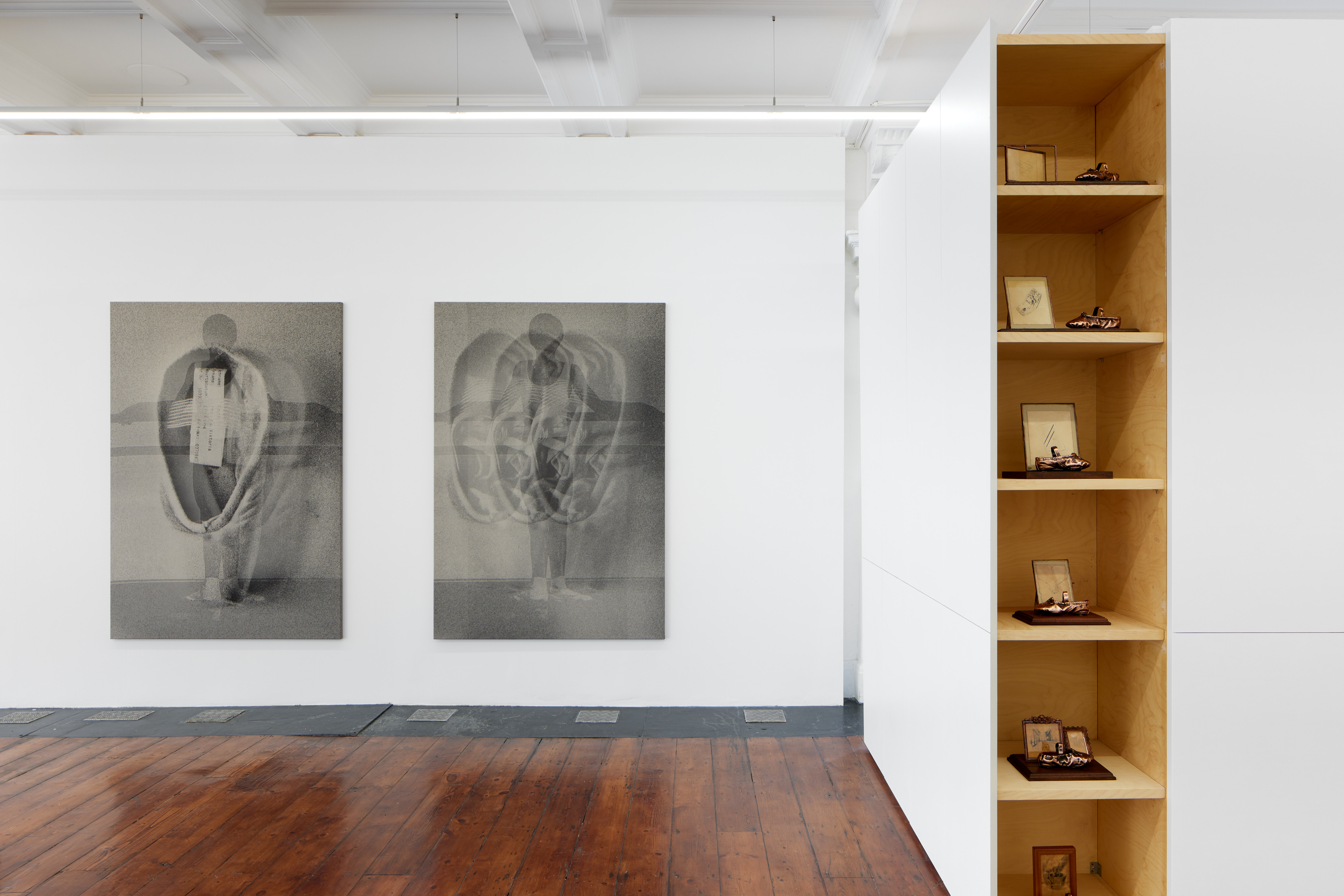
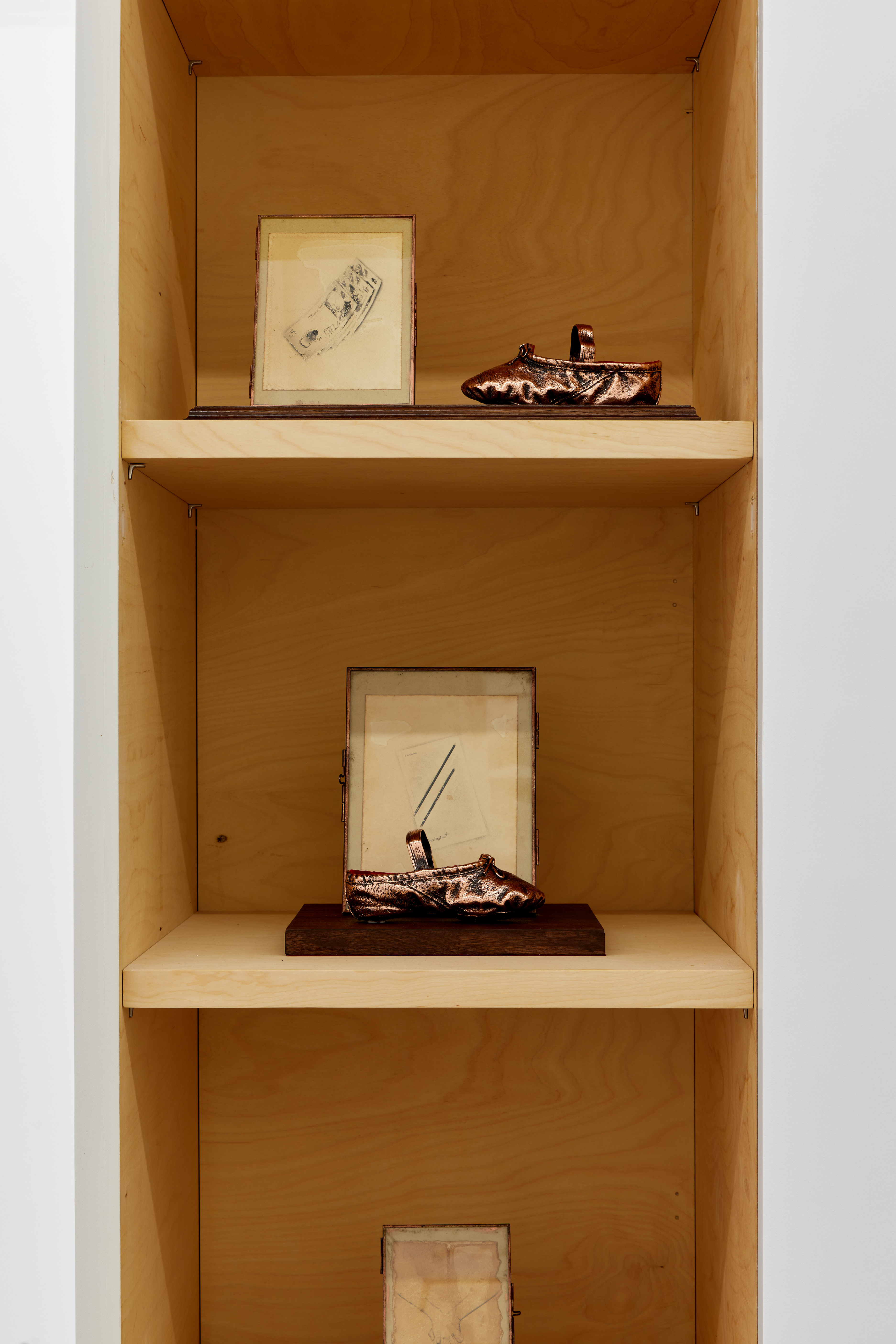
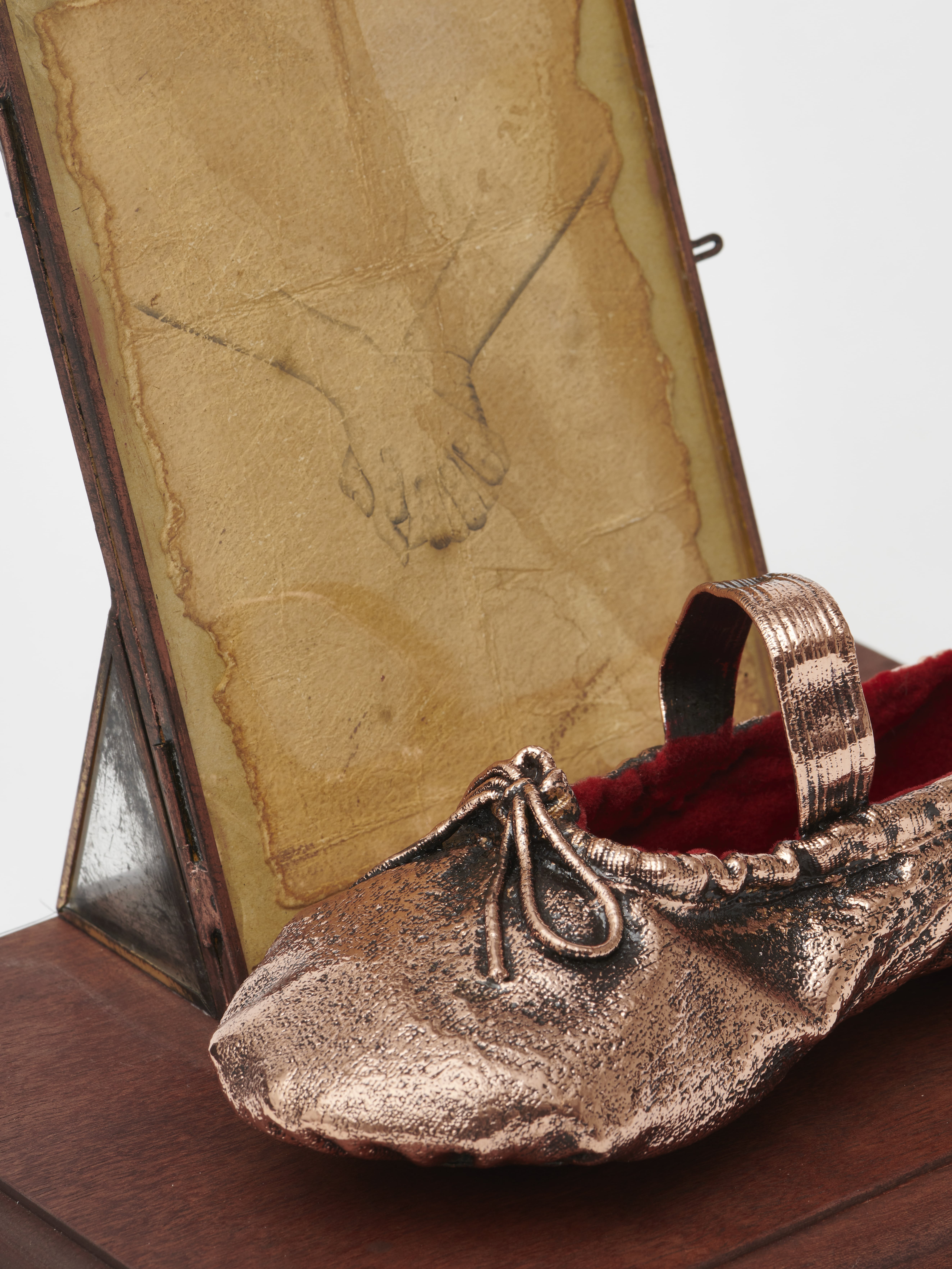
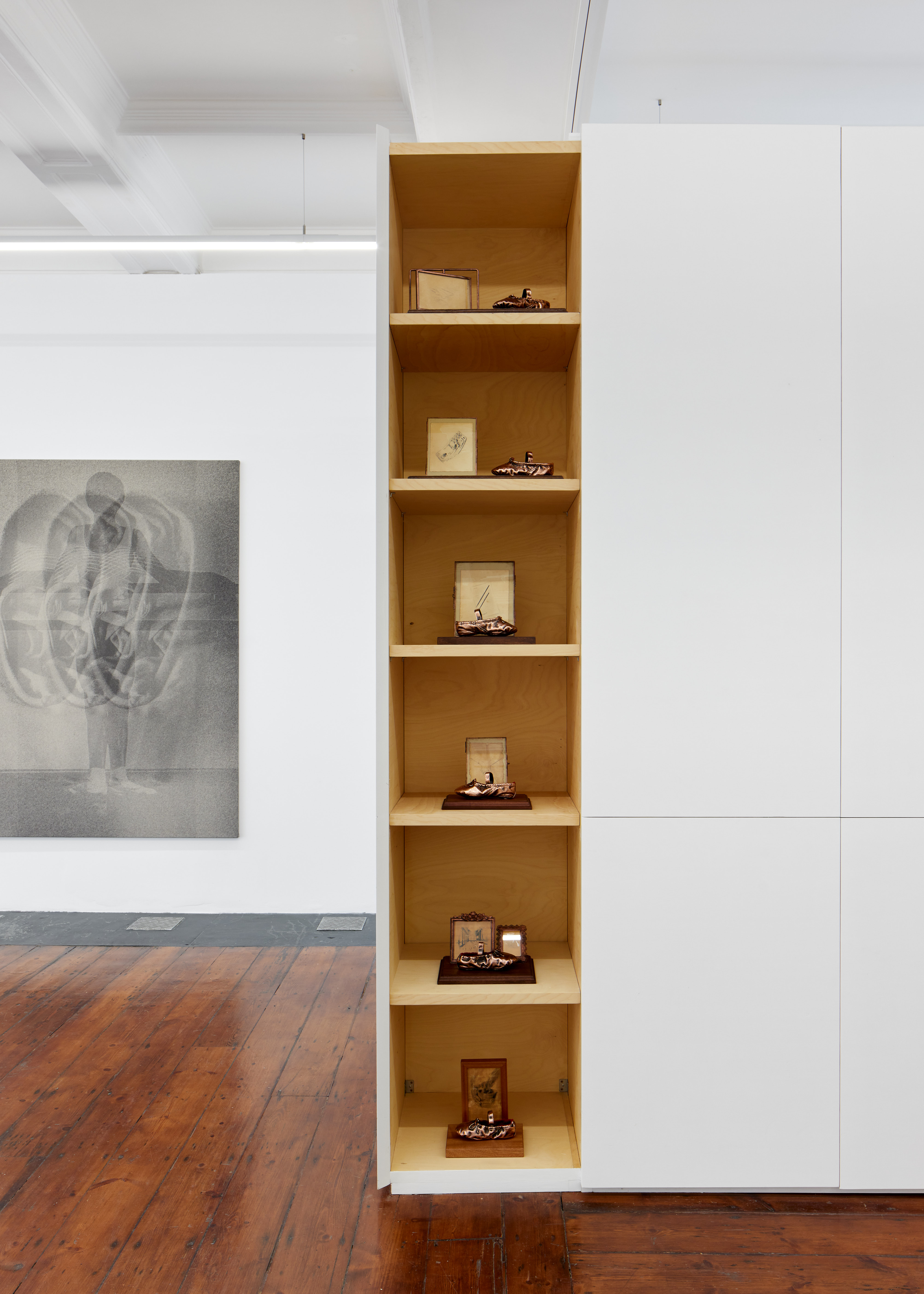




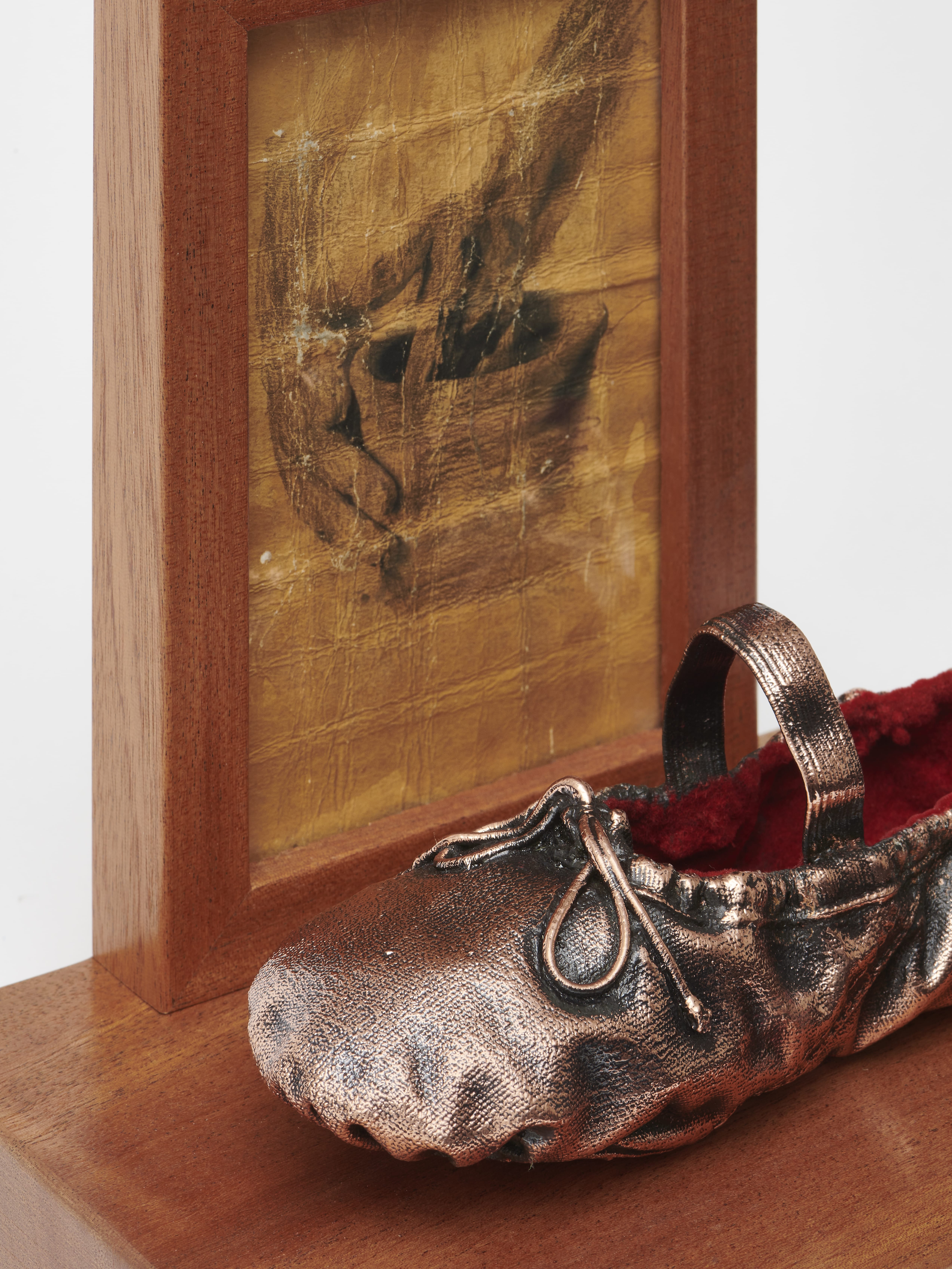
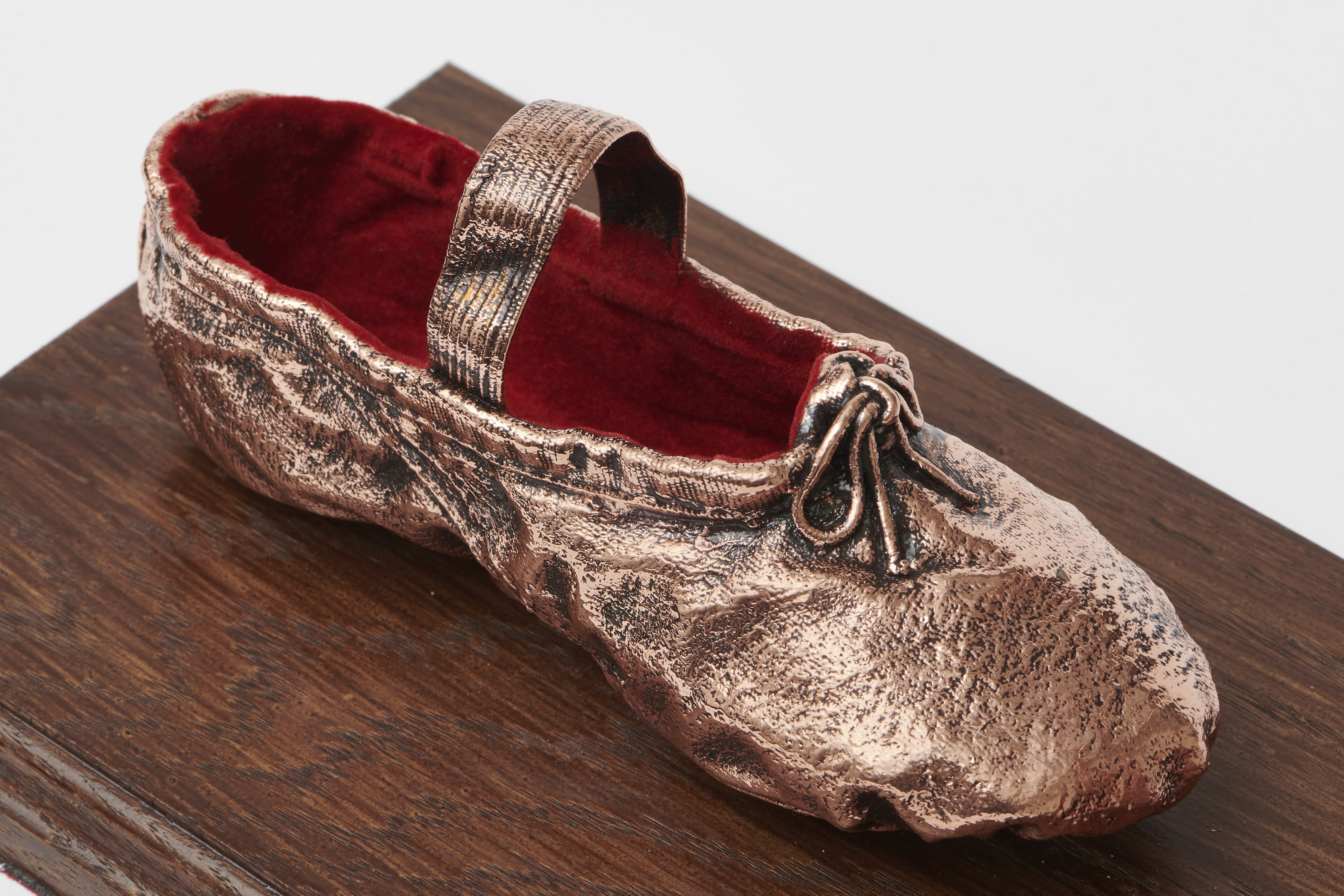
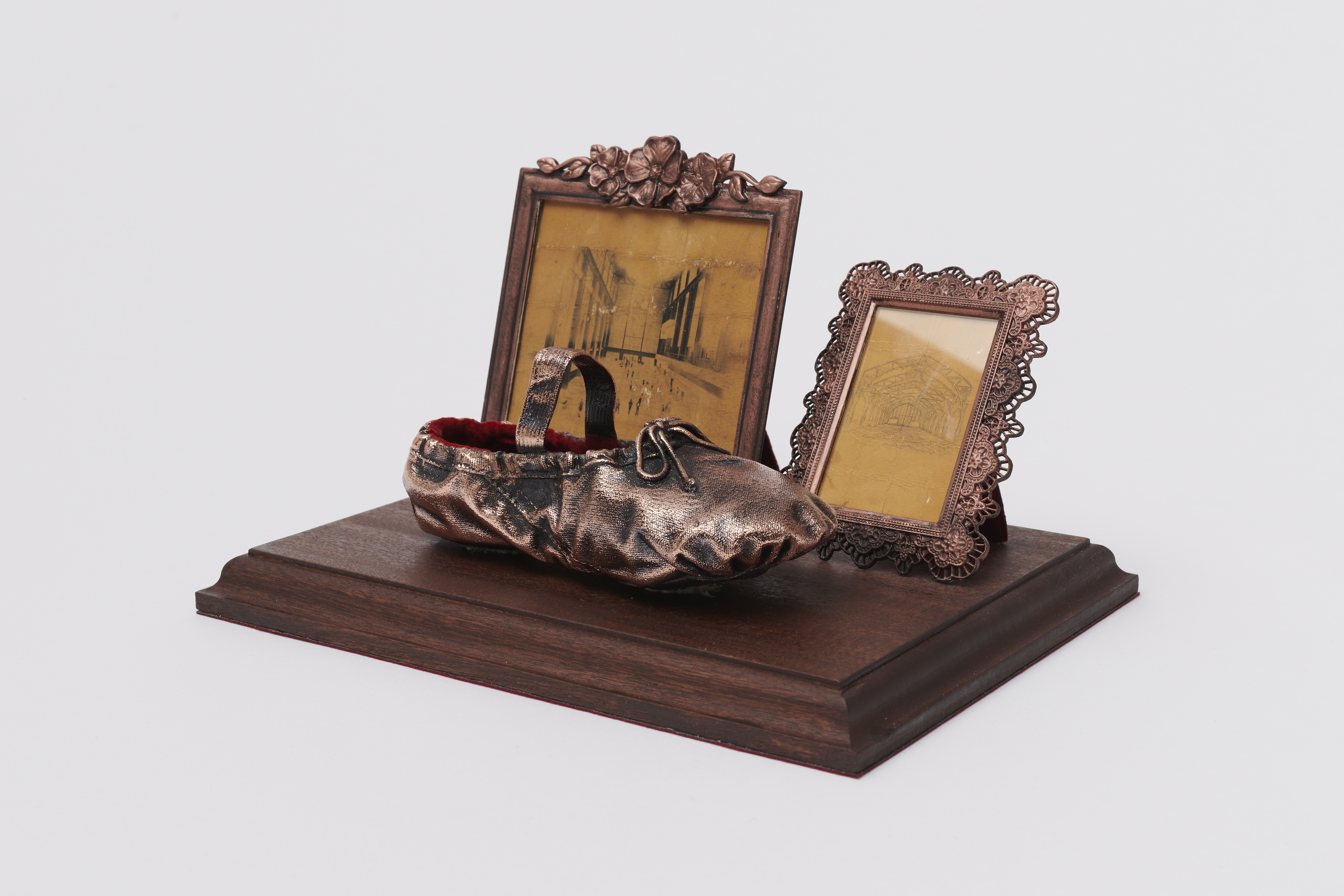
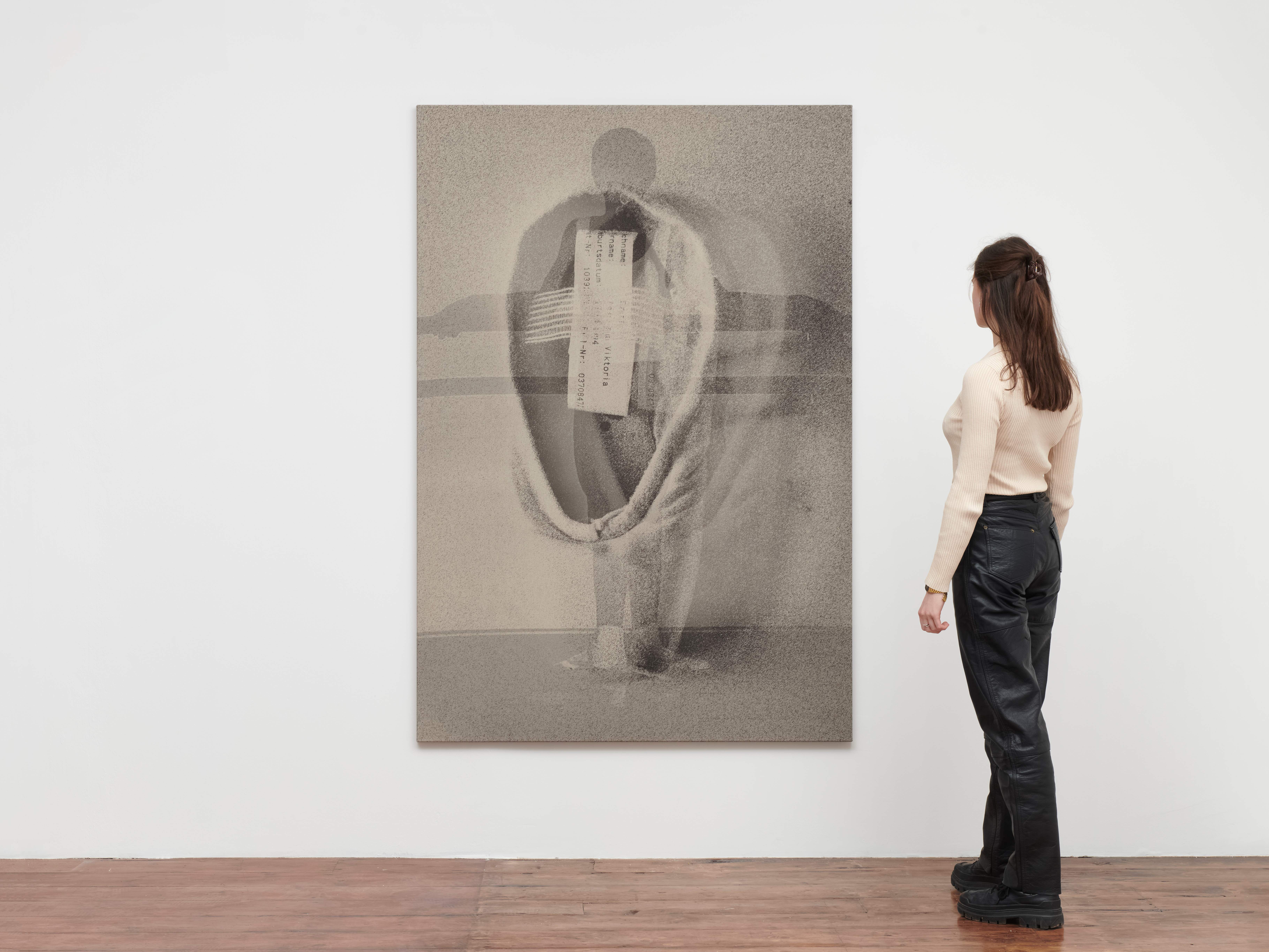

Work list: Liberal Trauma Trophy

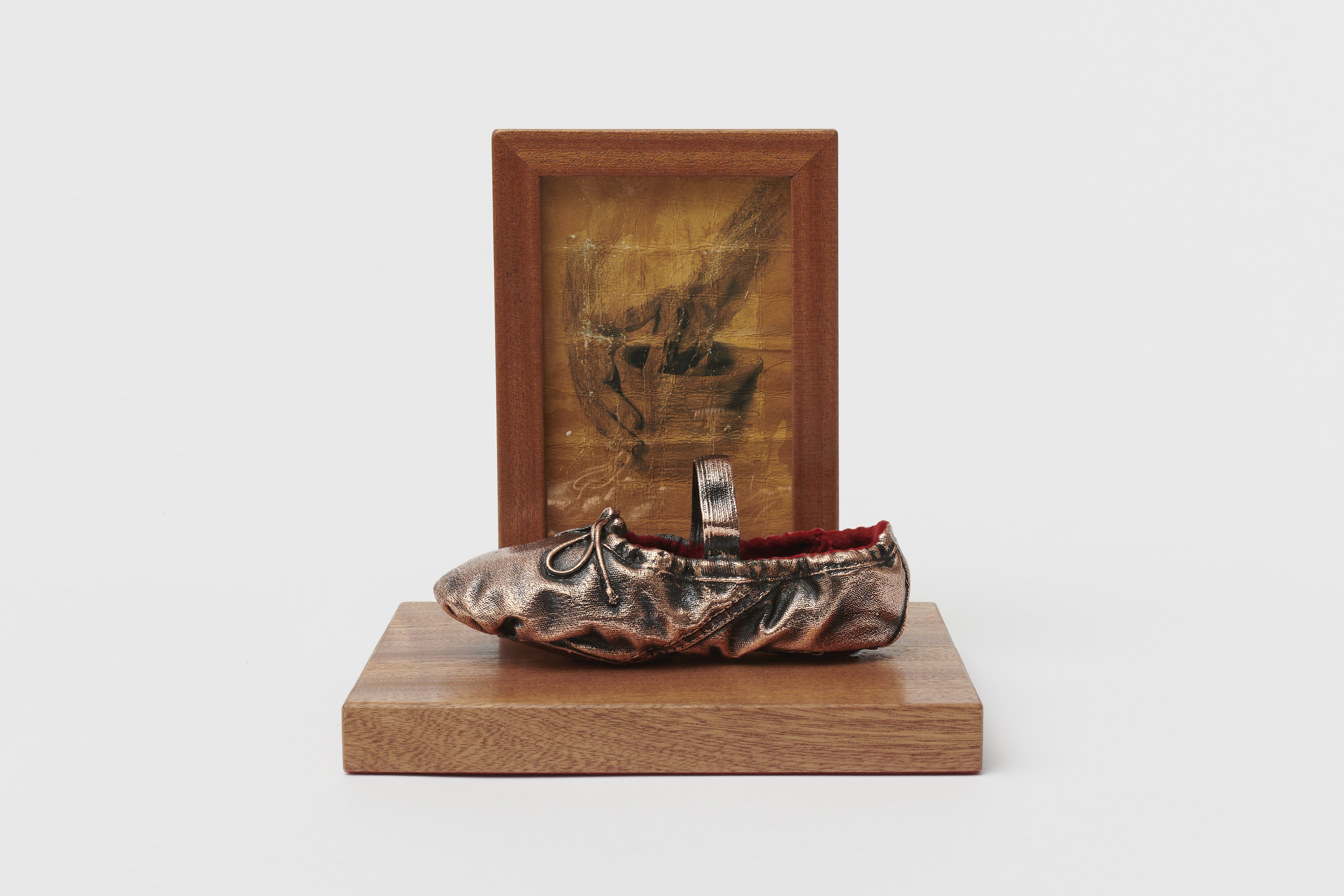



Work list: Conservative Distress Dispaly


